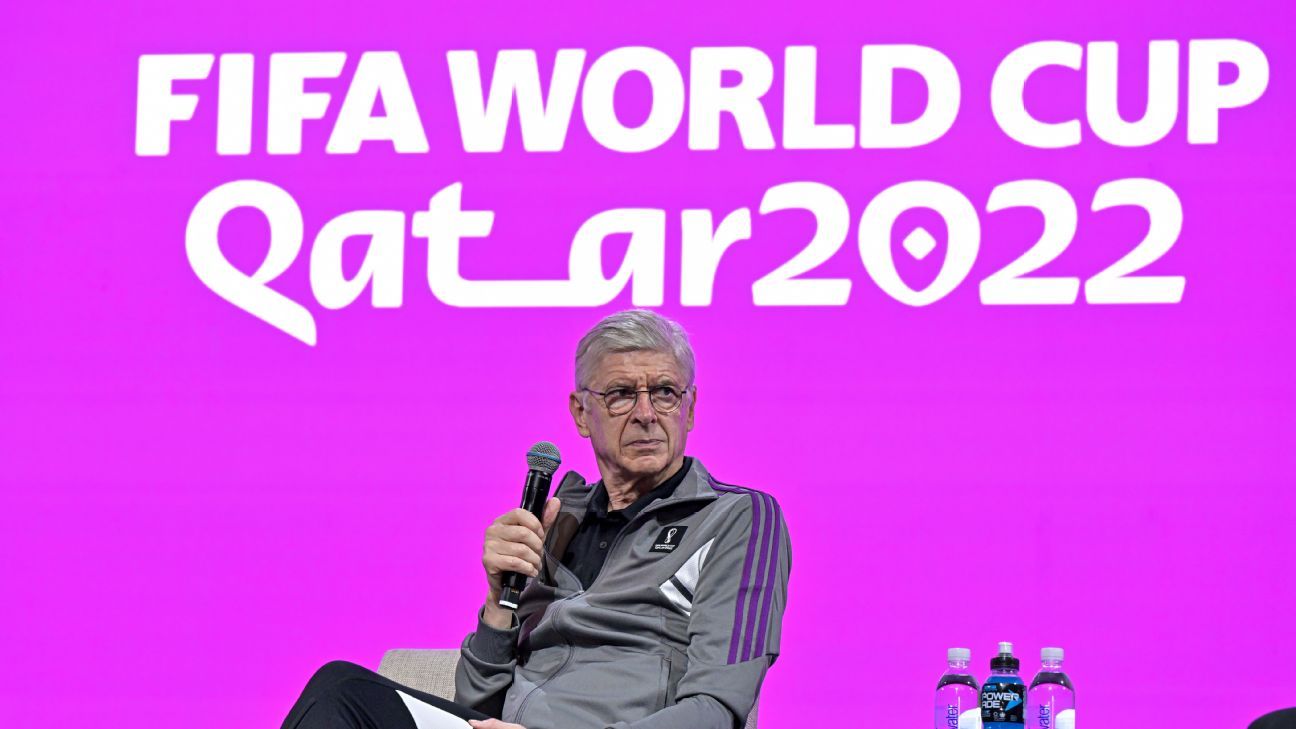AL RAYYAN, Qatar – Speaking in his capacity as FIFA’s Chief of Global Football Development, Arsene Wenger insinuated that teams which made political statements early in the World Cup saw their on-field performance suffer as a result.
The comments came at a media briefing for FIFA’s Technical Study Group, in which Wenger and Jurgen Klinsmann shared the group’s findings from the group stage.
– Stream on ESPN+: LaLiga, Bundesliga, more (U.S.)
In response to a question about the impact of the truncated preparation period in advance of the tournament, Klinsmann spoke about the importance of being able to “mentally and physically” adapt to the challenges of playing during a break in the European season and in the Middle East.
“If you struggled to adapt, to come here and for whatever reason — especially mentally — were not able to adapt yourself to everything you find here and how dynamic this World Cup is, you will struggle,” Klinsmann said. “And you will get a negative surprise like we saw with Germany, we saw with Denmark and other teams.”
Those comments prompted Wenger to jump in.
“I would just add that the teams who were not disappointing with their first game performance — because when you go to the World Cup, you know not to lose the first game — are the teams who have experience,” Wenger said. “They have results in former tournaments like France, like England, like Brazil. They played well in the first game. And the teams, as well, who were mentally ready, like Jurgen said, that [had] the mindset to focus on competition and not on the political demonstrations.”
Though Wenger did not mention Germany by name, it was a clear reference to Klinsmann’s home country, who lost their opening game to Japan, before which the players placed their hands over their mouths during the pregame on-field photo. The gesture came in response to threats from FIFA to seven European teams that they would face sanctions if they wore the “OneLove” armband symbolising diversity and tolerance.
Wenger did not expand upon how he reached that conclusion, nor did he clarify if the comments represented his personal opinion or that of the committee he was on stage representing.
“Of course it’s important for us to do a statement like this,” Germany striker Kai Havertz told ESPN postmatch. “We spoke about the game, what we can do, and I think first it was the right time to do to show the people that — yeah we try to help wherever we can. Of course FIFA makes it not easy for us but we tried to show with that thing.”
Added Germany coach Hansi Flick: “It was a sign from the team, from us, that FIFA is muzzling us.”
After losing the first match, 2-1, despite outshooting Japan 26-to-12, Germany responded with a 1-1 draw against Spain and a 4-2 win against Costa Rica, but did not advance.
Earlier in the briefing, Klinsmann assigned blame for Germany’s elimination to the lack of a productive No. 9.
